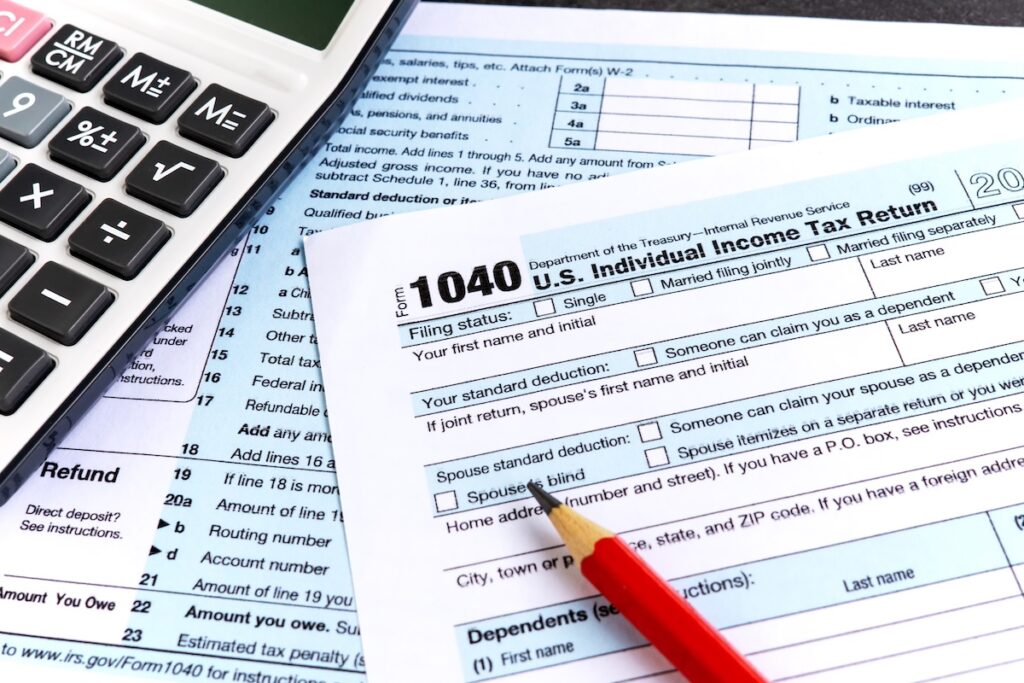Start Filing US Taxes From Poland
June 16, 2025 | Country Guides | 14 minute read
Expat Tax Blog. Tax Tips for US Americans abroad.
Updated
 All blogs are verified by Enrolled Agents and CPAs
All blogs are verified by Enrolled Agents and CPAs
Updated
If you’re an American living in Poland, understanding US-Poland expat taxes is essential to staying compliant—and avoiding double taxation. Poland’s rich history, affordable cities like Kraków and Wrocław, and strong expat communities make it a popular spot for remote workers and retirees. But the US tax system doesn’t let go just because you’ve moved abroad. As a US citizen, you still have to file an annual tax return with the IRS—no matter where you live. Luckily, tax benefits and exclusions between the US and Poland can help reduce what you owe.
Filing US Taxes for Families Abroad
Thinking about residency in Poland?
Catch-Up on US-Latvia Expat Taxes with the Streamlined Procedure
US-Poland Expat Tax Agreements
Navigate US-Poland Expat Tax Regulations
Tackle Double Taxation with US Tax Benefits
Investing in Poland as a US Expat
US-Poland Expat Tax Tips for Freelancers
Simplify Your US-Poland Expat Taxes with MyExpatTaxes
Do I Need to File US Taxes?
It’s a question many Americans ask when they move abroad–and the answer is probably not what you want to hear. Because America taxes based on citizenship rather than residency, even when you move abroad, the need to file travels with you. In 2025, if you are a US citizen or green card holder who meets any of the following thresholds, you’ll need to file your 2024 US taxes:
| Filing Status | Income Threshold |
|---|---|
| Single | $14,600 |
| Married Filing Jointly | $29,200 |
| Married Filing Separately | $5 |
| Self-Employed | $400 |
| Qualifying Widow(er) | $29,200 |
| Head of Household | $21,900 |
This could result in double taxation: owing taxes to both the US and Poland on the same income. Luckily, there are several mechanisms to reduce or avoid double taxation, which we’ll break down in this US-Poland Expat Tax Guide.
FBAR & FATCA Reporting for US-Poland Expat Tax Compliance
FBAR (Foreign Bank Account Report)
If your foreign financial accounts ever total more than $10,000 combined at any point in the year, you need to file an FBAR—even if the balance only passed that limit for one day. It’s not part of your IRS tax return. Instead, you file it online with FinCEN form 114. There’s no tax due with the FBAR, but missing the deadline can lead to big penalties.
You can file your FBAR with MyExpPatTaxes, or file your taxes & FBAR together to save time and money!
FATCA (Foreign Account Tax Compliance Act)
FATCA is another reporting requirement for Americans abroad, but it focuses on foreign assets, not just bank balances. If you’re a single filer with foreign assets over the threshold (starting at $200,000 for single filers), you need to file Form 8938 with your US tax return.
Filing US Taxes for Families Abroad
Now you know if you need to file a US tax return from Poland. Next step? Picking the right filing status—a choice that can seriously impact your tax rate and the deductions you’re eligible for.
Single: If you’re not married, you’ll file as “Single.” Nice and straightforward.
Married to a US citizen or Green Card holder: Both of you need to report your worldwide income—including any earnings in Poland—so “Married Filing Jointly” is often the best option.
Married to a non-US citizen or non-resident: Your spouse isn’t required to file US taxes, so in most cases, you’ll file as “Married Filing Separately.” You can choose to treat them as a US tax resident and file jointly—but that opens the door to more reporting and potentially higher taxes.
Head of Household: This status is for those who are unmarried (or considered unmarried by IRS rules), cover more than half the household costs, and have a qualifying child living with them—whether in Kraków, Poznań, or elsewhere. It usually comes with better tax rates and bigger deductions than filing as Single.
Thinking about residency in Poland?
You’re generally considered a Polish tax resident if you’ve spent at least 183 days in the country in a year or if Poland becomes the center of your “vital interests.” That includes things like:
- Family ties: Having your spouse or children living in Poland
- Economic ties: personal/business interests like property, a job, bank accounts, or investments in Poland .
- Social/cultural integration: where you participate in community, clubs, or schooling.
If none of that applies to you, you’ll only be subject to Polish tax on your Polish-sourced income.
US-Poland Expat Tax Deadlines
Expats get an automatic extension on their US tax filing:
| Date | Deadline |
|---|---|
| April 15th | Standard Filing Deadline |
| June 16th | Expat Tax Filing Deadline |
| October 15th | FBAR & Tax Extension Deadline 1 (by digital request) |
| December 15th | Tax Extension Deadline 2 (by written request) |
Like the US, the Polish tax year follows the calendar year, with tax returns due between the following 15 February and 31 April.
Stay up-to-date with deadlines (as well as tips and offers) straight to your inbox with the MyExpatTaxes newsletter.
Get your email reminders about upcoming deadlines!
"*" indicates required fields
Catch-Up on US-Latvia Expat Taxes with the Streamlined Procedure
If you weren’t aware you needed to file US taxes while living abroad, we have some great news for you. The IRS has an amnesty program, the Streamlined Procedure, which allows you to become fully compliant. All you need to do is file 3 years of tax returns and 6 FBARs. Like most amnesty programs, you have to take action before you get caught! In this case, you need to file the Streamlined Procedure before the IRS contacts you, or you could be subject to hefty failure-to-file and failure-to-pay penalties.
US-Poland Expat Tax Agreements
The US–Poland Tax Treaty is designed to prevent double taxation and fiscal evasion. It outlines which country can tax different types of income—like wages, dividends, pensions, and business profits—and offers reduced rates or exemptions in some cases. However, most benefits don’t apply to US citizens because of the Savings Clause, which allows the US to continue taxing its citizens as if the treaty didn’t exist. For US expats in Poland, the treaty mainly helps to clarify taxing rights and supports the use of tax credits to avoid double taxation.
Separately, the US-Poland Totalization Agreement, coordinates Social Security contributions. If you’re paying into Poland’s ZUS system, you generally won’t owe US self-employment tax. This avoids double contributions and helps protect your future retirement benefits in both countries.
Securing Your Polish Visa
As an American citizen, you can visit Poland for tourism or business for up to 90 days with no visa. You just need a blank page in your passport and at least 6 months remaining passport validity. However, from 2026, you’ll need to register with the new European Travel Information and Authorization System (ETIAS).
For longer term stays, Poland offers the Type D National Visa, which is valid for up to one year, and offers a path to permanent residency. You need to apply in person, and eligible purposes for D Visa include:
- Employment: Non-EU/EEA nationals need a work visa to be employed in Poland. Your employer must apply for a work permit on your behalf at the local Voivodeship office. The type of permit depends on the job’s duration and nature.
- Study: Planning to study in Poland for over 90 days? You’ll need a student visa—and a residence permit if your studies exceed one year. You’ll have to show proof of admission, an invitation letter, and language proficiency in Polish or English.
- Family Reunification: To join a spouse or parent living in Poland, apply for a family visa. It’s valid for two years and lets you work legally. You’ll need documents proving your relationship, like a marriage or birth certificate.
- Business/Investment: For investors, or business owners planning to incorporate in Poland and contribute to the economy.
Navigate US-Poland Expat Tax Obligations
Income Taxes
Tax residents pay Personal Income Tax on their worldwide income using a progressive system: 12% on income up to PLN 120,000 (Polish Zloty) after a PLN 3,600 personal allowance, then 32% on income above that. Residents earning less than PLN 30,000 per year are exempt.
If you’re self-employed, you can opt for the flat 19% Linear Tax with no personal allowance, instead of the progressive rate.
Investment income—like dividends, interest, and capital gains—is taxed at 19%, with no personal allowance.
Non-residents in Poland are only taxed on income earned within Poland, such as local employment, business activities, or rental income—foreign income is not subject to Polish tax.
Social Security & Health Insurance (ZUS)
Employers, employees and the self employed contribute to Poland’s social security system (ZUS). Employees contribute 13.71% of gross income, Employers pay between 19.21% to 22.41%, and self-employed individuals pay a lump sum based on their wage forecast. Employees also pay 9% towards health insurance and the self employed pay a variable rate according to their elected tax method.
Other Taxes You Should Know
- Solidarity tax: an extra 4% applies to incomes over PLN 1 million.
- Property: Local property taxes vary by municipality.
- VAT: ranges from 5–23%.
Tackle Double Taxation with US Tax Benefits
The US is one of just two countries that taxes based on citizenship, not residency. As a result, you may be eligible to pay taxes twice. But don’t stress—US-Panama expat tax strategies like the FEIE and foreign tax credits can reduce or even eliminate your US tax bill. Here’s what you need to know:
Foreign Earned Income Exclusion (FEIE)
The Foreign Earned Income Exclusion lets you exclude up to $126,500 of foreign-earned income from US taxation if you meet either the Physical Presence Test (being physically present in a foreign country for at least 330 full days during any 12-month period) or Bona Fide Residency Test (being a resident of a foreign country for an entire tax year). This commonly-used expat tax break is filed with Form 2555 along with your federal tax return.
Foreign Tax Credit (FTC)
If you pay income tax to Poland, you can claim those payments as a credit against your US taxes with Form 1116. The Foreign Tax Credit isn’t just for earned income—it can apply to all types of foreign income, including rental income, interest, and dividends. The key? You can only use taxes paid on passive income (like Polish rental income) to offset US taxes on passive income (and earned with earned). This system helps avoid double taxation on your full range of foreign income, not just wages.
Foreign Housing Exclusion:
If you use FEIE, you may also qualify to exclude housing costs like rent and utilities. The exclusion applies to costs in excess of $20,240, which could come in handy if you live in a higher-cost city like Warsaw or Kraków.
Good to Know: MyExpatTaxes will calculate and apply the maximum tax benefits available for your unique tax situation, ensuring you pay as little tax as possible.
Investing in Poland as a US Expat
Although the US has some tough rules for expats investing abroad, don’t worry—it’s totally doable once you understand the basics.
Common Ways to Invest in Poland as a US Expat:
- Property: Americans can buy property in Poland for personal use or rental income. Property prices are relatively affordable, and cities like Warsaw, Kraków, and the Lodz area are popular spots with strong rental markets. A bilingual attorney can assist in a smooth property transaction.
- IRAs & Roth IRAs: You can still contribute up to $7,000 per year ($8,000 if you’re over 50) to a US-based retirement account as long as you have eligible earned income. It’s a great way to stay on track for retirement while abroad.
- US Stocks & Bonds: For most expats, the best option is to keep investing simple and US-based. Investing in foreign mutual funds or ETFs—like Polish investment products—can trigger high US taxes due to PFIC rules.
If you already own Polish mutual funds, don’t stress. MyExpatTaxes helps you easily report them on Form 8621, so you stay compliant with the IRS without the headache.
Self-Employment: US-Poland Expat Tax Tips for Freelancers
Self-employment in Poland offers freedom, whether you’re freelancing from a café in Kraków or running your business from Warsaw. But as a US citizen, you must file a US tax return if you earn $400 or more from self-employment—even while abroad.
Normally, you’d also owe 15.3% in US self-employment tax, but thanks to the US–Poland Totalization Agreement, you can avoid double contributions by paying into Poland’s ZUS system instead.
Poland offers a break for new entrepreneurs: for the first six months, you’re exempt from paying social security, followed by 24 months of reduced “preferential contributions.” These local reliefs can help lighten your startup costs while you stay compliant on both sides of the Atlantic.
Retiring in Poland
Retiring in Poland is increasingly attractive to US expats thanks to its affordable lifestyle, warm hospitality, and natural beauty.
You can stay visa-free for up to 90 days and then apply for a National Long-Stay Visa with proof of sufficient financial sources and health insurance. With a modest Social Security income, you can live comfortably—even in larger cities, where Poland offers a cost of living that’s over 50% lower than in the US.
Healthcare is accessible through Poland’s National Health Fund (NFZ), providing universal coverage to legal residents, and can be supplemented with affordable private plans for faster service and English-speaking care.
Poland is considered very safe, with low crime rates and political stability making it ideal for retirees. Top places to retire include Krakow for its history and amenities, Gdansk for coastal charm, Wroclaw for picturesque canals, and Zakopane if you love mountain scenery.
Overall, for US expats seeking affordability, community, and security, Poland delivers a compelling mix—just prepare for harsh winters and brush up on Polish to fully enjoy your retirement adventures.
Simplify Your US-Poland Expat Taxes with MyExpatTaxes
A move to Poland comes with lots of new challenges–don’t let filing your US expat taxes be one of them!
At MyExpatTaxes, our expert software makes filing quick and simple. You can e-file in under 30 minutes, or work alongside one of our Tax Professionals for the ultimate peace of mind. No matter your situation, we have an affordable package for you. Our standard plan even includes FBAR and FATCA reporting, among many other tax forms.
Join the thousands of expats who trust MyExpatTaxes to maximize your US tax benefits and ensure your return is filed correctly!
See Why US Expats From Around the World Love Us!
Easily file regardless of how complex your US expat tax situation is.
Been here before? Sign in!


Written by Nathalie Goldstein, EA
Nathalie Goldstein, EA is a leading expert on US taxes for Americans living abroad and CEO and Co-Founder of MyExpatTaxes. She contributes to Forbes and has been featured in Forbes, CNBC and Yahoo Finance discussing US expat tax.
June 16, 2025 | Country Guides | 14 minute read






